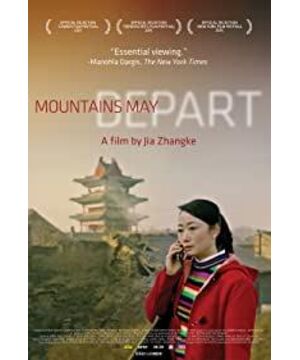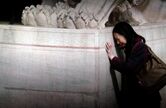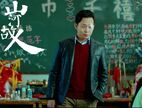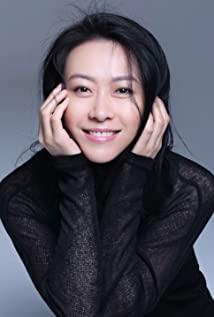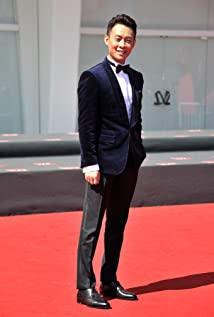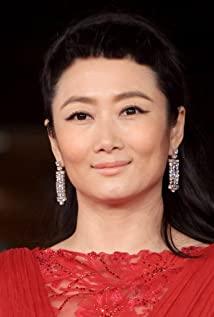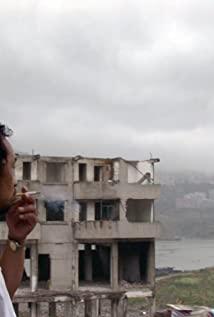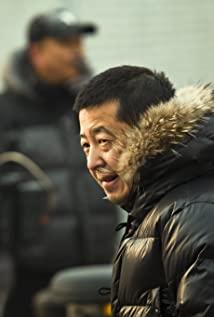"Mountains and Rivers" is definitely Jia Zhangke's most ambitious film. He almost remade his famous work "Platform" with greater investment, more perfect technology, and fresher video language, and tried to include contemporary Chinese past, All emotions from now to the future.
But is it a good movie? This may depend on what kind of coordinates we give it. If this coordinate is a movie released in the Mainland, then it is not bad. But what if this coordinate system is Jia Zhangke?
It seems that from the beginning of "The Good Man in Three Gorges", Jia Zhangke has become two Jia Zhangkes, one is Jia Zhangke who also shouted "Bravo" (wonderful) by foreign media, and the other is accused by domestic media of too catering to the appetite of Westerners, and his talent has died. Jia Zhangke. This time, the split is destined to be more pronounced.
For a long time, Jia Zhangke is considered to be the best director at capturing and describing contemporary China. After he came out of "Platform", this seems to be what Jia Zhangke always does in every film. But in "The Old Man in the Mountains and Rivers", we only see the mountains and rivers, but not the old man.
Perhaps it is inevitable to get lost, because who has the ability to describe this rapidly changing China, which is bound by modernization and advancing? Who can tell what the love and hate of this country's 1.3 billion people are now, let alone the past and the future?
The fact is that Jia Zhangke, a young man from a small town, has already become an internationally renowned director Jia Zhangke. After all, the mountains and rivers in his memory are "the mountains and rivers are far away", so Jia Zhangke, the old man in our minds, is only left with "the west is out of the sun". It's about no one."
The times are running too fast, we didn't catch up, and Jia Zhangke didn't catch up either.
So in this glorious age of Chinese cinema, Jia Zhangke lost himself in his own films.
Jia Zhangke did not
capture the taste of contemporary China. Of course, there is no problem with filming a realistic fable of contemporary China, but when everything in the film is reduced to symbols and chess pieces, all serving the fable, and even being manipulated by the fable’s meaning, This fable is absurd, and of course the film is untenable.
We can understand why Jia Zhangke made this film. He said it very clearly: "By the time of this film, I feel that society has developed so fast. When we are in a hurry, we should not ignore the most basic emotions in life."
From the perspective of the storyline, what the audience sees is only a set of three-part plots that are common in domestic dramas: the first paragraph, the local tyrant (Zhang Yi) chosen by the literary young woman Shen Tao (Zhao Tao) in a love triangle. be a husband. In the second paragraph, the middle-aged woman in literature and art is divorced, her child is awarded to a local tyrant, her old lover is on the verge of dying, and her life is reduced to all kinds of melancholy. In the third paragraph, the grown-up child and the teacher played by Zhang Aijia staged a "mother-son" love.
However, when he tried to show the years 1999, 2014 and 2025 in three different film formats, his creative ambition and sense of formality overshadowed everything, so that the characters in the film were more symbolic, the social issues reflected were more, and the stories were more interesting. The continuity is stronger, but compared to the movie "Platform", which also tells the story of the little people in the county, "The Old Man of the Mountains and Rivers" has lost that penetrating power.
What he said is indeed the reality of China that we are familiar with, but this reality hardly impresses us. why?
"The Old Man of the Mountains and Rivers" is about a Chinese family, not an epic. The
Cannes Film Critic once said that "The Old Man of the Mountains and Rivers" is a Chinese family epic.
But unfortunately, you can't say that this is a Chinese family epic just because a director shoots a Chinese family in a movie. According to this logic, if I shoot a woman, this is an epic about a woman? I made a steamed bun, is this an epic of Chinese steamed buns?
The problem with Jia Zhangke is this: the bigger his ambitions, the smaller China will be. When he was a small town youth on the platform, filming "Xiao Wu" was filming himself. In that story, it was full of personal and life experiences, so the characters were so full of personality, and the youth of young people changed with the times. As soon as the music of "Farewell My Concubine" sounded, it was an era.
But when the section chief claimed to be shooting all the emotions of an era, whether it was the love, hatred and anger of Zhao Tao, Zhang Yi, and Liang Jingdong, the year-end kiss between Zhang Aijia and Dong Zijian, or the drawn guns of Zhang Yi and Dong Zijian's father and son. It is just a symbol in the movie. They love and hate parting because Jia Zhangke makes them love and hate parting. The story needs them to appear there. In such a story, the audience does not know who to sympathize with and who to be moved by.
Then the biggest embarrassment appeared. Jia Zhangke said, look, I want to show young people the emotions lost throughout China, but everyone looked at them and said: This is not my emotion at all.
The fact is, this is just a family epic of the wife and son of a Shanxi coal boss. Jia Zhangke's films cannot represent China, nor anyone else.
No matter how big the technology is, it can’t replace the emotion.
This may be the movie that Jia Zhangke has made the most big moves in film images and skills so far. , but that's all.
If you are watching this movie for the first time, you will probably be shocked by the following big moves:
about 45 minutes after the opening, the title suddenly appears, so you don't know if this is the longest opening in Chinese film history. Compared with the big moves in the back, this kind of treatment is relatively easy to understand. It seems that Jia Zhangke is making a long farewell to his past self. The past is gone, and the new era begins here.
The second big trick is: three frames and three ages. This is perhaps the most cheering part of the film critics, at least it moved the foreign film critics in Cannes. The aspect ratio and photographic style correspond to the time of the story. This is not only the self-selection of the image expression of "The Old Man of the Mountains and Rivers", but also a symbol of Jia Zhangke's general The cinematic sense of form is perfect.
The third big trick The audience has already experienced in "The Good Man of the Three Gorges": the plot of the sci-fi film is inserted without warning. When Zhao Tao abandoned her old lover of literature and art, and walked alone on the mountain road, a surreal green plane crashed in front of her. There are many similar sudden sci-fi plots. This sci-fi abruptness may be used to witness the abruptness of the times, or something else, the meaning of which may only be known to Jia Zhangke himself, of course, it is also possible that he does not know.
Compared with these big moves, things such as slow frame playback, color change processing, video tape shots, etc. are obviously nothing.
Compared with the technical omnipotence, the full English presentation of the third story and the year-end love that challenges the audience's psychology are actually nothing. Although this story is so contradictory, when it is this When this sense of inconsistency permeates the entire film, this incongruity instead achieves a strange harmony.
A director certainly has the right to choose which cinematic technique to use in his film, but never forget why technique serves.
If film skills are also a craft, what Jia Zhangke does is the work of a craftsman. His greatest skill is to use this craft to bring a poetic feel to the film. This poetic approach once made Jia Zhangke famous, and even those deliberate audio-visual passages in "Platform" are appropriate and outstanding because they are collectively called the content of the characters.
However, when the application of this technology loses the support of the story and the characters, the audience is left to follow the visual spectacle that Jia Zhangke created in the film, without knowing the purpose and significance of the existence of this spectacle.
Back to his hometown, Jia Zhangke is the Jia Zhangke
In a sense, "The Old Man of Mountains and Rivers" is actually two movies. One represents Jia Zhangke's new attempt to explore the future world, and one-third of the dialogue is in English. The other is the first and second parts of the film, which still have a lot of elements and narrative styles from Jia Zhangke's past works.
Only when the movie returns to the familiar Linfen mining area to shoot those urban youths, discos, and even the closed, dull, and old-fashioned villages, that is the Jia Zhangke we are familiar with.
Jia Zhangke is good at photographing his hometown, and he is also good at photographing the changes of an era. When an agricultural country with sudden urbanization, the people of the country refuse to accept urbanization, and the pain and anxiety they experience all appear on Jia Zhangke's film. This is the most moving part of Jia Zhangke's films in the past.
So when Jia Zhangke returned to that familiar hometown, those passages belonged to Jia Zhangke. For example, at the end of the movie, Zhao Tao wrapped a table of dumplings and went out to walk the dog. When the camera finally turned to her standing alone in the wilderness, the old song of the year sounded, Yiren danced alone, the era rumbled by, and the story came to an abrupt end. This technique was so familiar, but it moved the audience with a bang.
Even if the audience is puzzled by the preceding paragraph, at least this paragraph is clear. With the rapid transformation of the times, personal emotions have turned into piles of huge unfinished ends. After all the experiences, the fate of the individual is left behind in the wilderness of history and can never reach the other side. The past cannot be forgotten, but after the joys and sorrows of life, life must continue after all. Maybe every Chinese has experienced this kind of mood more or less. It was not until the end of the film that Jia Zhangke became the familiar Jia Zhangke.
Another place that impresses the audience is the theme song of "Old People in Mountains and Rivers": Ye Qianwen's "Treasure", "The weather is getting colder in other places, and there may be snow flying in the future. If I can, I don't want to leave you", there is an ancient poem that perfectly presents the song The artistic conception in the poem is: "The mountains and rivers are full of empty thoughts, and there is no old person out of Yangguan in the west".
Just like Jia Zhangke's past movie songs, this song appears repeatedly and has become a part of the movie's narrative. The reason why it can move us is because the song is actually about the choice of the very familiar era - "go" and "stay" . People who were driven to a foreign country by the times, established a life in a foreign country and were tortured by life and longing, when all the sadness was sung by a song and appeared in the most suitable place in the movie, we seem to have found the familiar old section chief again .
Nostalgia in Coal City and farewell wells will always be Jia Zhangke's best part. Perhaps compared to shooting an empty fable of the times with all kinds of ingenious tricks, returning to his hometown and shooting the decadence and dilapidation of his hometown in a familiar way, also shooting A group of people is returning home on the road of urbanization. At this time, Jia Zhangke is the best Jia Zhangke.
Jia Zhangke's middle-aged film crisis
Some people say that a director will always make a movie with the same theme all his life. So Jia Zhangke's films are actually returning home again and again. It's just that Jia Zhangke, a young man from a small town who returned to his hometown, has finally become today's internationally renowned director and master Jia Zhangke. At the same time, he has also become a middle-aged Jia Zhangke. Just like in Xu Zheng and Shen Teng's comedies, any middle-aged person has a mid-life crisis, and so does the section chief's film.
Those who really know the section chief should know that the present result of "Old Man in Mountains and Rivers" may be Jia Zhangke's intentional choice. He chose such a shooting method, and he should have expected different reactions from Chinese and foreign audiences.
Jia Zhangke's films are becoming more and more complicated, with so many plots of love triangles and year-end love, so many techniques, and so many elements of science fiction films. The feeling of this "enrichment" to the audience is not necessarily positive. Yes - at least for the Chinese audience, for me, I prefer a simpler section chief.
However, when he tried to express the impact of modernization on individuals, families and society, or the identity dilemma of overseas Chinese, he could not find the most suitable carrier, so he used the almost curious way of shooting in English. , As a result, not only the Chinese do not buy it, but even the most popular foreign film critics can't stand it. Not to mention the plots in the film that were posted in order to fit the theme - a boy who grew up to 7 years old in his hometown, after more than 10 years away from home, even needs to be translated when he quarrels with his father. This is actually a plot close to a sci-fi film. .
When "Mountains and Rivers" premiered in Cannes, the film was criticized by the domestic media for losing its documentary style and "Chinese narrative" ambition. In my opinion, this is not a problem at all, no one has the right to kidnap creators. Jia Zhangke's movie train is destined to move forward, no one has the right to let him stay in the past, middle age has arrived, after all, old age is coming, and the section chief can't always play the media's favorite underground angry youth director, that's all right .
The question is: can a director keep what is really moving about him, if Akira Kurosawa ditched the katana and Hitchcock is no longer scary, are they still Akira Kurosawa and Hitchcock? When Jia Zhangke's observation of Chinese society has lost its focus, is he still Jia Zhangke?
Say goodbye to mountains and rivers, and finally see the old people. As Jia Zhangke himself said, what he provides is "just a kind of real China", "The reality in Shanghai is different from the reality in Shanxi, and the reality of everyone in Shanghai is different, part of A luxurious, renovated China, part a remote, forgotten China, which China is the real China?” And our question is: one is a gorgeous, renovated Jia Zhangke movie, and one is the original The rough Jia Zhangke movies, which Jia Zhangke is the real Jia Zhangke?
Jia Zhangke was once disqualified as an "underground" director because he sent his works abroad for competition in violation of regulations. In January 2004, the State Administration of Radio, Film and Television issued a document to restore Jia Zhangke's directorship.
Eleven years have passed since then, and China has become dazzling. Has the section chief's films become richer and more generous, or have people not been able to find the North?
Without his hometown and his old friends, Jia Zhangke used his sadness to film "The Old Man of Mountains and Rivers". In the film, in the decades of Shen Tao, the mountains and rivers have been ups and downs, and the old people have been together and separated. But when the film entered the 2025 year of a future realist world conceptualized by the section chief, the film went too far beyond Linfen, and Jia Zhangke finally lost himself.
I can't tell whether this loss stems from Jia Zhangke's willfulness in middle age or a calculation in the face of movies. Master, market and international style, section chief, what do you want?
In the movie, Ye Qianwen's song sings affectionately, "When you stop on the way, people will look back at you again, even if you are in the two places, you will be waiting for you all your life." After leaving his hometown, the absurdity of reality is difficult to express simply. Facing a richer world, Jia Zhangke is destined to choose to use richer techniques to photograph this world. Jia Zhangke cannot stay on "Platform" forever. However, the times are complicated, and movies need to be simple in the end, because simplicity can move people's hearts.
Farewell to the mountains and rivers, how can there be old people. Chief, it's time to go home.
View more about Mountains May Depart reviews


